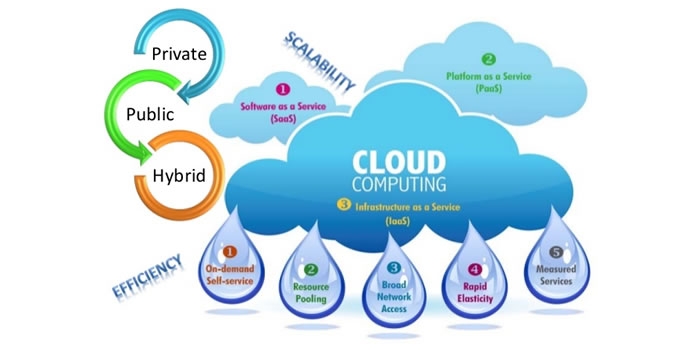Developing Canvas Element
Canvas was initially introduced by Apple for use inside their own Mac OS X Web Kit component in 2004, powering applications like Dashboard widgets and the Safari browser. Later, in...

Cloud computing is the term used to describe technology that will replace how we currently use our computers and software applications.
The concept of cloud computing is that any device connected to the internet can utilize a network of computing resources. This would include infrastructure, applications and storage for far less than what it would cost to use your own hardware, software and resources.
It allows users to have access to applications that they would not have otherwise. Access is as simple as using an interface application or just a web browser from any location. The cloud can allow access to millions of computers in an intelligent, scalable and redundant system with expert support. Similar to outsourcing, the difference and advantages of cloud computing are speed, efficiency, capability and cost, particularly with the increasing popularity of smart phones and tablets. It allows users to work from anywhere, to perform any task with any application, and to pay for only what you use.
Cloud computing is comparable to using email or online banking where you log into your account to access and manage your information. The software, applications and storage do not exist on your computer. But unlike your email or online banking services, clouds can perform complicated engineering tasks, schematics, modeling or mathematical computations, and it can do this in a cost effective and efficient manner. Another major advantage to cloud computing is the reliability of service. Servers can crash, temporarily denying you online access to services and data. But cloud computing has multiple servers so you always have access. Some concerns about cloud computing are security and the effect it will have on the computer industry.
The security concerns are similar to those regarding email and online banking. These have proven to have reliable security protocols therefore similar advanced technology has been adopted for cloud computing. It’s anticipated that computer repair and maintenance, as well as IT employment /contracts will steadily decline as cloud computing rises in popularity. There has been a proliferation of free public clouds appearing on the internet. These services, often referred to as SaaS (software as a service) are easy to use, fast, reliable and very good.
You can increase your use of cloud computing to meet a high demand on your resources and you can reduce your usage during low demand. This allows you to adapt to changing conditions without making significant long term investments in personnel, computers, software and operational costs.